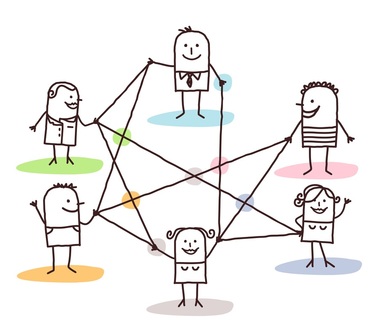|
There’s no doubt about it: most people like to belong. In the past, individuals were more likely to be a part of groups because of their physical proximity to the community. Church, recreational, sports, social, and even industry-related organizations attracted people who lived and/or worked nearby. But the advent of online communities has truly changed the way people connect and the groups to which they belong. Now, it’s possible for individuals to be a part of communities that exist and communicate virtually—without ever having a physical presence. And even groups with an actual location can still boast virtual members from anywhere. As the world continues this digital evolution, researchers are studying the factors that tie people to online communities. Understanding what makes people form a bond and remain committed is key to their success—because engaged members are more involved, more active, and ultimately determine the fate of the group. Here’s what researchers have determined: 3 things motivate people to be a part of an online communityKeeping in mind that everyone is different, studies have shown that there are three main factors that motivate people to join up online:
But while wanting, needing, or a feeling of “I ought-to” offer insight into why people may join one group or another, there’s more to understanding why members remain committed. Research that dates back to the 1950s elaborates on this topic. A study by Festinger, Schachter, and Back discovered that there are two different ways that loyalty to a group is formed, and these findings still apply to online forums today. Identity-based commitment occurs when people feel a connection to the group as a whole. In this case, members are attracted to the goals or mission of the organization, and identify with its purpose. They want to be a part of the community because they feel that they can help to further a cause. Examples of this type of commitment include being drawn to groups based on gender, geographical location, political party, hobbies, nationality, etc. Members feel a sense of belonging based on their identification with these factors. Even if they don’t have “friends” in the organization, they remain committed because it’s the identity that they are drawn to. Bond-based commitment is different in that members are drawn to the group because they feel a connection to individual members. This commitment depends on forming relationships with group members and feeling bonds with specific individuals. Friendships and camaraderie are the keys to bond-based attachments and if one member leaves the group, it’s not uncommon for others who are close to that person to terminate their membership as well. Which type of commitment makes online communities stronger?For online communities, both types of commitment can influence the success of the group. But if you think about it, identity-based commitments are more desirable than those based on personal bonds. Consider this: It’s easier for a group to establish its mission and goals and draw in those that feel strongly about a cause than it is to influence friendships and bonds within the group. Thus, it makes sense that online communities would want to attract members who will not only want to join the group, but also feel a deep ideological connection to what that group is all about. Even the smallest group can be successful with a strong commitment from its members. In a nutshell: Identity-based commitment is more effective in leading people to continue their membership, remain active, and ultimately strengthen the organization. What can online groups do to encourage identity-based attachment?The key to attracting members who will identify with your group’s mission and goals is to communicate your purpose effectively to the right people. Targeting your enewsletters, social media efforts, fundraising, and membership drives to well-suited audiences is crucial. It’s also important to make your group’s purpose clear in all of your communications and to share what the organization is up to, including highlighting activities, workshops, or networking and learning opportunities. Online communities are one of the main ways that people connect, engage, and make a difference in today’s world. To be successful at attracting the right members (and keeping them active and involved), understanding why and how people form bonds is critical. memberplanet helps groups engage, fundraise, run membership drives, collect dues, communicate, share and do so much more—all in one place. Click below to get a head start on reaping the benefits of our innovative platform.
0 Comments
Your comment will be posted after it is approved.
Leave a Reply. |



